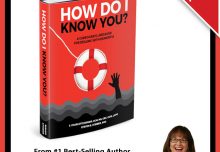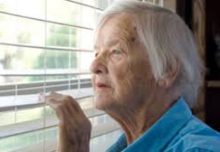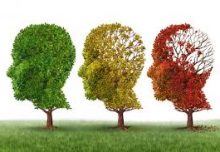 September is Alzheimer’s Awareness Month, and this is the second of four posts we’ll offer on the subject. A fair number of folks have a right to be disappointed that we don’t yet have a cure for Alzheimer’s Disease (AD) or at least some way to effectively slow the disease. Right now, there are nearly three thousand clinical trials underway that are focused on preventing, slowing or curing Alzheimer’s Disease, but there has been no success yet. I’ll talk about that in a later post this month, but better and earlier diagnoses of this dreaded condition are worth a lot to the families that need to adapt to a loved one with Alzheimer’s
September is Alzheimer’s Awareness Month, and this is the second of four posts we’ll offer on the subject. A fair number of folks have a right to be disappointed that we don’t yet have a cure for Alzheimer’s Disease (AD) or at least some way to effectively slow the disease. Right now, there are nearly three thousand clinical trials underway that are focused on preventing, slowing or curing Alzheimer’s Disease, but there has been no success yet. I’ll talk about that in a later post this month, but better and earlier diagnoses of this dreaded condition are worth a lot to the families that need to adapt to a loved one with Alzheimer’s
Not that long ago, the only definitive way to diagnose Alzheimer’s disease was following the patient’s death when an autopsy could reveal the telltale signs of this scourge. One contribution that researchers have made is in helping families and loved ones of a potential Alzheimer’s patient to better and earlier sort out when Alzheimer’s may be showing itself.
Mayo Clinic has published an extraordinarily long list of “tells” of AD that include:
- Difficulty in remembering, planning, concentrating and problem-solving;
- Confusion or problems in seeing tasks to their conclusion;
- Visual, spatial and navigational difficulties;
- Word-finding and judgment problems; or
- Changes in personality, social engagement or other behaviors.
These are not definitive, but medical professionals also have become far more adept at neuropsychiatric exams that can quantify the verbal and cognitive difficulties that can be the hallmarks of AD. And the technical ability to link this information with far more precise diagnostics using cerebrospinal fluid markers and imaging techniques applying MRIs, CT scanning and PET Scanning makes earlier and more accurate diagnoses possible.
These diagnostic techniques also are important elements in clinical trials to demonstrate the efficacy of new therapies in development. To date, no one has been able to bring home the prize, a therapy that physically shows improvement both these biomarkers and actual cognition. We certainly have seen a therapy like Aduhelm fall down on cognitive testing when it seemingly was addressing the underlying physiology of Alzheimer’s dementia. But we are getting closer, and I’ll talk about some of those thousands of clinical trials and where we may see the first glimmers of real hope to make this scourge a chapter of history.
Charlotte Bishop is an Aging Life Care Advisor, Geriatric Care Manager and founder of, certified professionals who are geriatric advocates, resources, counselors and friends to older adults and their families in metropolitan Chicago. She also is the co-author of How Do I Know You? A Caregiver’s Lifesaver for Dealing with Dementia.







